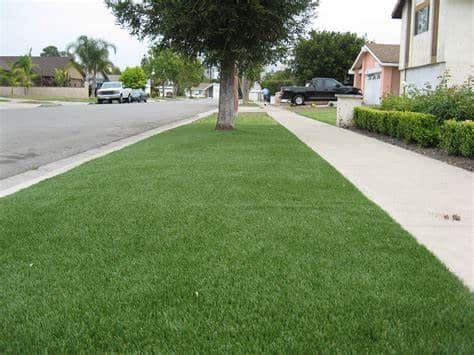How To Properly Install Drainage For Artificial Grass In Coronado?
 Artificial grass has become increasingly popular in residential and commercial landscapes due to its low maintenance and aesthetic appeal. However, proper drainage is essential to ensure its longevity and functionality. Without adequate drainage, water can accumulate, leading to issues such as mold, mildew, and unpleasant odors. Here are five essential tips for properly installing drainage for artificial grass:
Artificial grass has become increasingly popular in residential and commercial landscapes due to its low maintenance and aesthetic appeal. However, proper drainage is essential to ensure its longevity and functionality. Without adequate drainage, water can accumulate, leading to issues such as mold, mildew, and unpleasant odors. Here are five essential tips for properly installing drainage for artificial grass:
- The foundation of your artificial grass installation plays a crucial role in drainage. Instead of compacted soil, opt for permeable base materials such as crushed rock or decomposed granite. These materials allow water to drain through easily, preventing waterlogging beneath the turf. Ensure proper compaction and grading to promote efficient water flow away from the surface.
- Incorporating perforated drainage pipes into the base layer helps facilitate the removal of excess water. Place the pipes strategically along the lowest points of the installation area or in areas prone to water accumulation. Connect the pipes to a proper drainage system or a designated drainage area to redirect the water away from the turf and surrounding structures.
- Geotextile fabric serves as a barrier between the base materials and the artificial grass, preventing soil and debris from clogging the drainage system. Choose a high-quality, non-woven geotextile fabric with excellent permeability to ensure efficient water filtration while preventing weed growth. Properly securing the fabric and overlapping seams will enhance its effectiveness and durability over time.
- Adding an aggregate sub-base layer between the compacted base materials and the artificial turf can further improve drainage. Materials like pea gravel or silica sand enhance drainage by creating additional space for water to percolate through the surface. Ensure proper compaction and a smooth, even surface to prevent uneven settling and potential drainage issues.
- Once the artificial grass installation is complete, ongoing maintenance and inspection are crucial to ensure proper drainage functionality. Regularly remove debris, leaves, and other obstructions from the surface to prevent blockages in the drainage system. Inspect the drainage pipes and geotextile fabric periodically for any signs of damage or deterioration, and address any issues promptly to prevent water buildup and potential damage to the turf.
FAQs
Can I Install Artificial Grass Over Existing Concrete Or Asphalt Surfaces?
While it is possible to install artificial grass over concrete or asphalt surfaces, proper drainage considerations are essential. Ensure adequate drainage by incorporating drainage holes or channels in the existing surface or by using specialized drainage systems designed for such installations.
Do I Need To Apply Infill Material For Drainage Purposes?
Infill material such as silica sand or rubber granules can enhance drainage by improving the stability and resilience of the artificial turf. However, the primary function of infill is not drainage but rather to support the fibers, provide cushioning, and improve the aesthetics and performance of the turf.
How Often Should I Inspect And Maintain The Drainage System?
It is recommended to inspect the drainage system and artificial grass surface at least twice a year, ideally before the start of the rainy season and after winter. Additionally, perform regular maintenance such as debris removal and infill redistribution as needed to ensure optimal drainage performance and prolong the lifespan of your artificial grass.
Conclusion
In conclusion, proper drainage is essential for the successful installation and long-term performance of artificial grass. By following these tips and addressing common concerns related to drainage, you can enjoy a beautiful, functional, and low-maintenance artificial grass landscape for years to come. For more information, contact Artificial Turf Coronado at (619) 486-3223.

